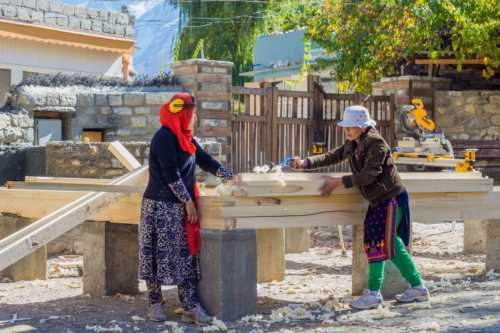In Gilgit-Baltistan, exists a remarkable oasis with high literacy rates and gender equality.
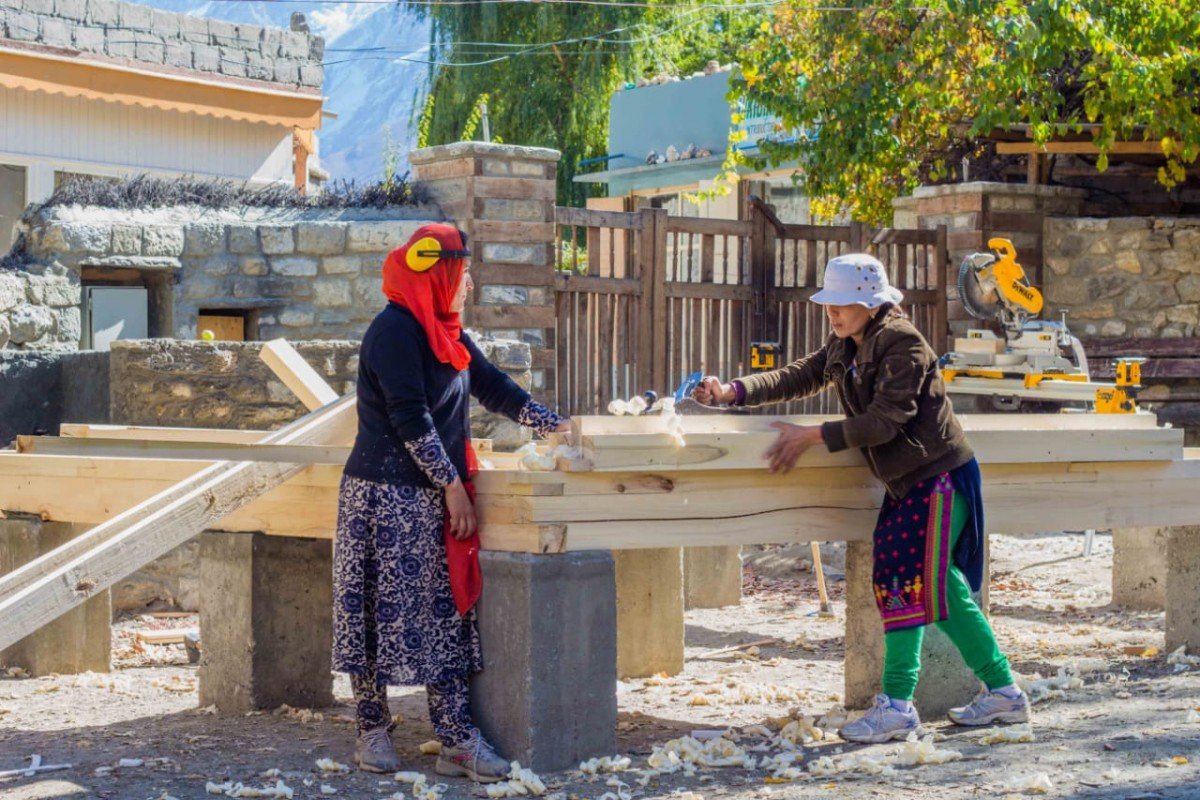
By Sam Dalrymple
In the disputed Karakoram mountains, the isolated Hunza valley feels cut off from the fractious politics surrounding it. As one approaches 8,200 feet, pine forests and orchards envelop villages that glint orange with apricots drying on their rooftops.
The blue and mustard shuttlecock burqas, which are prevalent throughout the foothills, are non-existent here and unveiled women wander the streets, busking on street corners and leading tour groups. Over the last decade, Hunza has been at the centre of a remarkable eco-feminist movement, with women’s education and employment – primarily in the environmental sector – skyrocketing to some of the highest levels in South Asia.
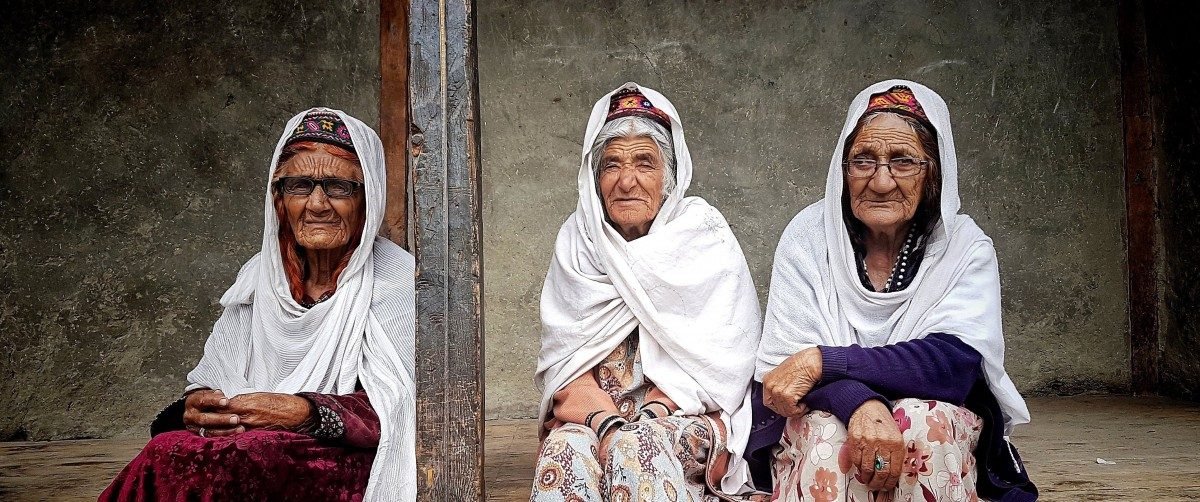
Hunza has always been strikingly different from the rest of Pakistan. Its grand palaces are reminiscent of nearby Tibet and the local language Burushaski has no known relatives anywhere in the world. Before the opening of the Karakoram Highway in 1979, its deadly mountain passes made Hunza accessible only to a few determined traders along the Silk Roads.
This remoteness gave the valley a mythic status for centuries. Hilton’s lost city of Shangri La is a motif used to promote every Buddhist town in the Himalayas, surprisingly, it was neither Lhasa nor Ladakh which inspired his creation. Instead, it was this liberal Muslim island, nestled within the otherwise ultra-conservative tribes and society of the Karakorams, where he stayed during the colonial rule, immediately prior to writing his book.
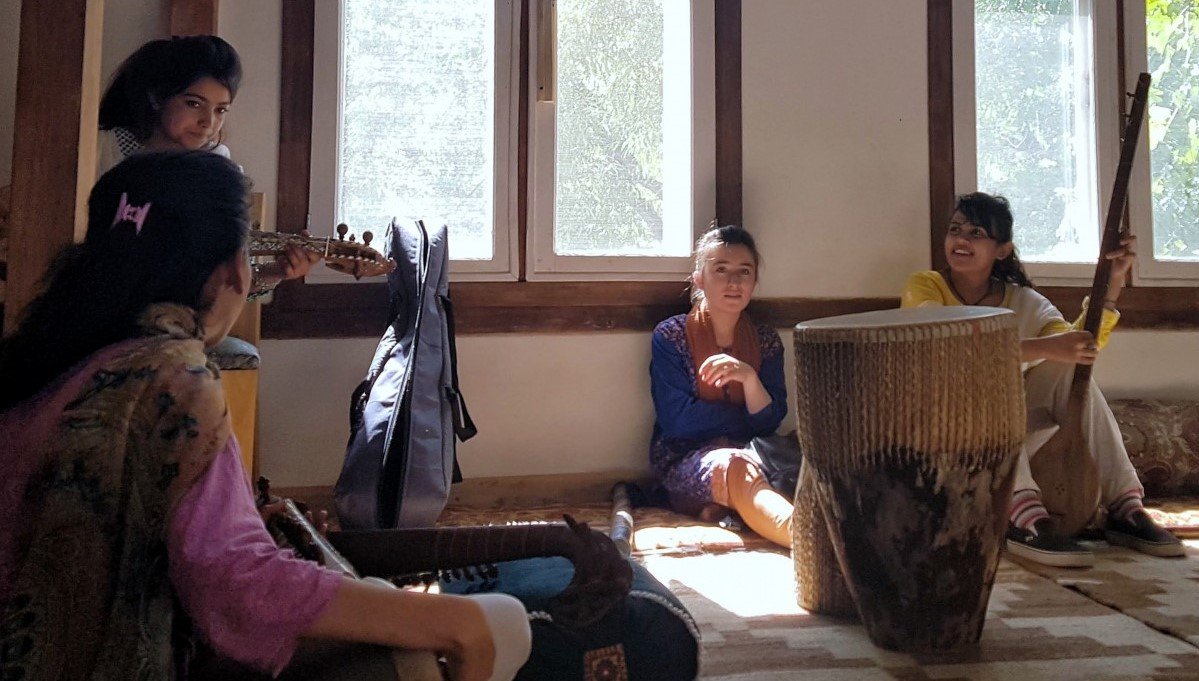
Despite its place in one of the most militarised regions of the world, Hunza is a major destination for domestic and foreign tourists and the mountains, which once isolated the Hunzukutz (the indigenous people of the valley), now attract hundreds of thousands of tourists each year.
But the valley remains remarkable for its unexpected feminist revolution that has taken place over the last decade. It is now a common sight to find women working in the bazaar and wandering around alone after dark. Female sport leagues have been set up and cricketers like Diana Baig have risen to the international level.
In 2013, Samina Baig, a young Hunzukutz woman, became the youngest Muslim woman ever to climb Mount Everest. A year later, she became the first Pakistani woman to climb the highest peaks on all seven continents, and she has since been appointed a UN Goodwill Ambassador.
Hunza is governed as a part of Gilgit-Baltistan, a Pakistani-administered disputed region which enjoys little government funding or political representation thanks to the regional dispute with India. Heavy investment in education and healthcare from the spiritual leader of the Ismailis – the Aga Khan – the literacy rates in Hunza are surprisingly some of the best in South Asia.
Today 98% of children in Hunza between the ages of 5-16 are in school and many students pursue higher education, both in Pakistan and abroad; 49% of those enrolling in government schools are women. In 2016, Al Jazeera reported that Hunza had a literacy of around 95%, making it the most literate district, 37% above the national average.
This is all the more extraordinary when one considers the state of affairs in the neighbouring valleys.
Despite the success, local women have only recently begun to benefit from Hunza’s employment sector. Maria Umar, the founder of the Women’s Digital League estimated in December 2013 that some 90% of Hunza’s educated population was unemployed, writing, “With each household averaging eight people, only male household members typically earn an income”.

Women in crafts
But since the establishment of Ciqam, a small women’s social enterprise, large numbers of women have gained employment in a variety of sectors throughout Hunza, igniting an eco-feminist movement within the valley.
Ciqam began in 2009 as an offshoot of a women’s surveying project, setting up carbon-neutral carpentry and crafts workshops, in an attempt to fight the dominance of concrete and plastic in the region’s landscape. The women began planting local trees – willow, walnut, olive and mulberry woods – and promoted their use in local building materials. In the last three years, more than 14,000 trees have been planted.
In 2012 they opened the ‘Kha Basi Café’, (down town café) which serves regional cuisine using organic, locally grown produce. The café is administrated and managed entirely by women: a first for Pakistan. Women even took part in its construction. Since then, 20 independent feminist establishments have opened in Hunza. Women-run cafes have even begun popping up in major cities elsewhere in the country such as Karachi and Quetta.
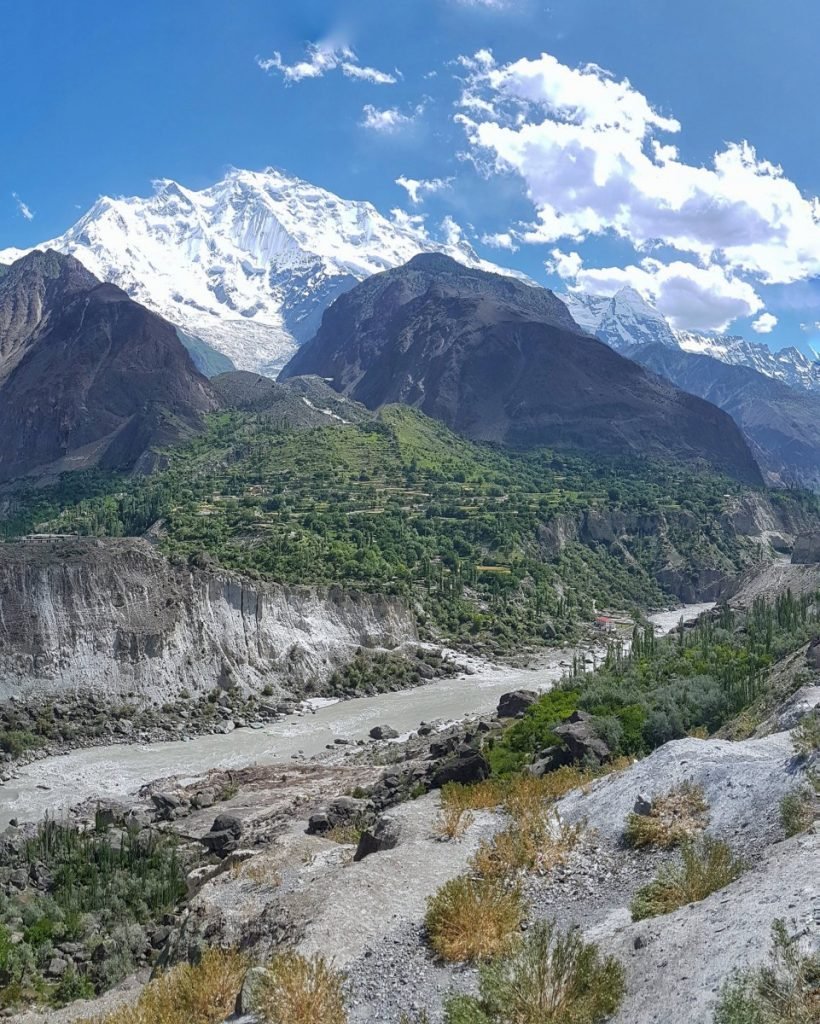
Women in art and culture
Most recently, Ciqam opened the Leif Larson Music Centre (LLMC) in 2016 to revive Hunza’s dying music traditions. Since then, the school has trained 36 students in local instruments and taught them songs in Burushaski and five other endangered languages. The school has produced two of the first female Rubab players, Sanya Taj and Suneila Baig, the latter of whom is also one of the first female Burushaski singers. The LLMC students are hoping to perform in both Norway and Tajikistan in the coming year.
Today Ciqam employs over 100 young women, supported by a small team of men. Through its success, it has inspired women throughout Hunza to become self-reliant and find employment.
The progress made for women is recent, and thus still quite fragile. Despite their newfound employment, women are still expected to do all the house chores and the area has seen a rise in female ‘suicides’, which many locals believe are honour killings.
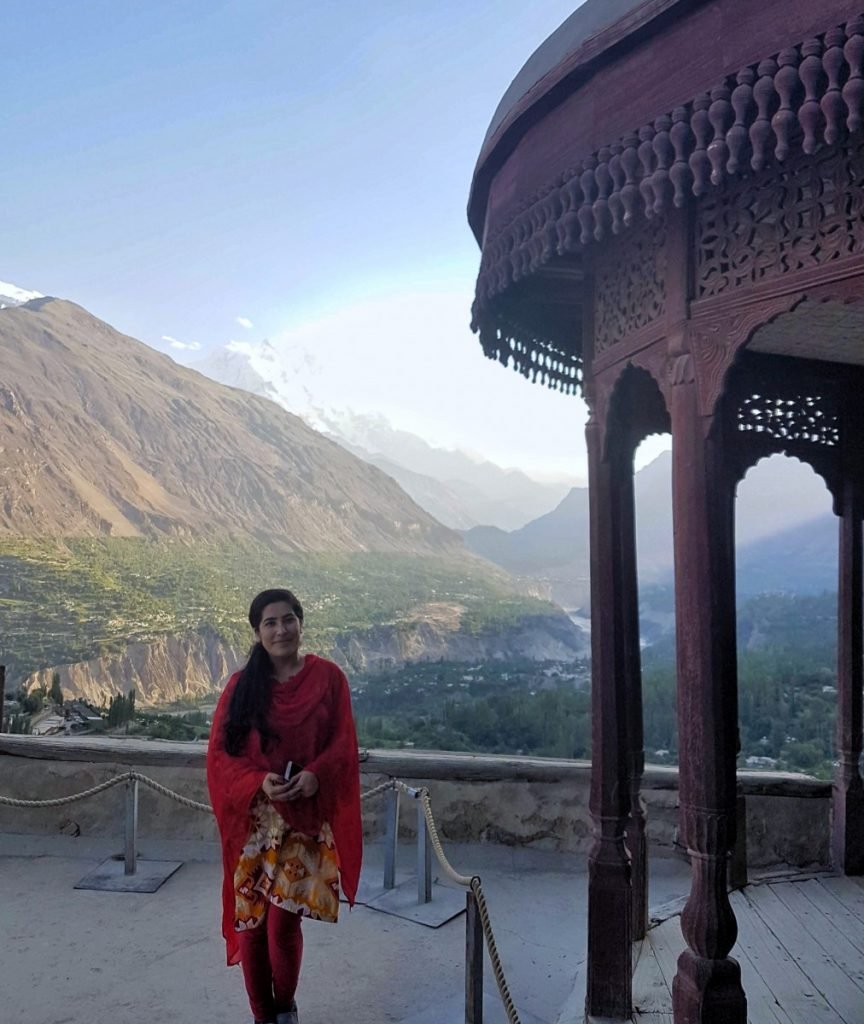
Furthermore, many are worried about how the recent tourism boom in the region will impact the movement. In the years since Ciqam surveyed Altit Fort, it has become one of Hunza’s major attractions and from 2012 to 2017 visitor numbers leapt up by 1,800%. Local authorities have been slow to react to the swathe of issues associated with this influx of tourists from the south: pollution, litter, strained infrastructure and sexism.
One of our biggest problems is all the non-local tourists coming up here, says Rehana Ali, a young woman who works as an agricultural consultant and teacher in Aliabad, the district capital. “They start talking behind their backs when they’re being guided by a female tour guide”.
Last year, Ali Madad, president of the Hotel Owners Association in Hunza complained to The Express Tribune that local women were drawing unwanted attention from domestic tourists, who regarded their appearances as signs of immodesty and sexual promiscuity. He claimed that although there are no brothels in the valley, “due to such demands, some untoward incidents did take place in the hotels”.
But despite these challenges, the women still feel confident about the future and women empowerment is slowly becoming normalised and accepted. “In the last few years girls have suddenly entered every field,” says Rehana.
“It’s changed so quickly. With the initial Ciqam carpenters and surveyors there was loads of backlash. People were stealing their ladders and tools asking, ‘Why are you doing this job? That’s not for women.’ But now everyone accepts it and wants all their daughters to go into it. Women are now starting their own businesses outside of Ciqam.”
The women of Ciqam are now working to minimise the negative impact of the tourism boom. They want to restrict the unregulated construction of concrete hotels and are developing techniques to provide cheap carbon neutral housing to locals instead.
“We aren’t afraid anymore,” says singer Suneila Baig. “Who can stop us?”
This feature as first published in the Wire.
![]() Sam Dalrymple is a finalist scholar of Sanskrit and Persian at the University of Oxford. He has been published in The New York Times and Condé Nast Traveller and is currently the Operations Lead at Virtual Reality Venture Project Dastaan
Sam Dalrymple is a finalist scholar of Sanskrit and Persian at the University of Oxford. He has been published in The New York Times and Condé Nast Traveller and is currently the Operations Lead at Virtual Reality Venture Project Dastaan

The High Asia Herald is a member of High Asia Media Group — a window to High Asia and Central Asia

